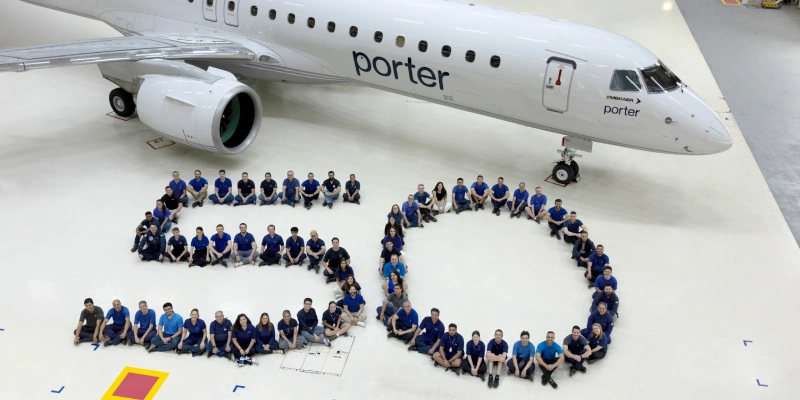Airbus has reached a historic milestone by dethroning the Boeing 737 as the most delivered commercial aircraft of all time. The 12,260th aircraft from the A320 family was delivered on Monday evening to Saudi Arabian airline Flynas, according to data from British analytics firm Cirium, a benchmark in the global aviation market analysis. With this achievement, the European manufacturer breaks a record that Boeing had held for decades.
This shift in leadership in the single-aisle aircraft market marks a new chapter in the intense competition between the two aviation giants. Combined, Airbus and Boeing have delivered over 25,000 units of these models, originally designed to connect major air traffic hubs, which later became the backbone of low-cost airlines.
Airbus, which already holds the title of the world’s largest aircraft manufacturer by annual deliveries, thus solidifies a position that reflects years of industrial strategy, technological innovation, and international expansion.
Rise of the A320: From Doubt to Dominance
When the A320 was launched in 1984, few would have bet on its success. Airbus faced an uncertain future after the launch of two wide-body aircraft that had strained its resources. But its first flight, in 1987, marked the beginning of a revolution.
→ Airbus and Air India Inaugurate Pilot Training Centre in Gurugram
Engineers in Toulouse, France, made a bold decision: to implement the fly-by-wire control system for the first time in a commercial aircraft, an innovation that replaced traditional mechanical controls with digital commands. Although the idea faced resistance from unions and airlines, time proved Airbus right. Today, that technology is an industry standard.
Boeing: From Leadership to Recovery
Meanwhile, Boeing set the standard for modern commercial aviation with the 737, introduced in the 1960s. However, the tragic accidents in 2018 and 2019 hit the US company hard, forcing it to reduce its production rate and face increased regulatory scrutiny. Even so, the Seattle-based manufacturer is working to gradually restore its production levels and regain market confidence.
Looking to the Future: Innovation on Pause
Both Airbus and Boeing plan to introduce new generations of aircraft in the next decade, but their executives agreed during the ISTAT conference in Prague that they will not start developments immediately. Both manufacturers are waiting for significant advances in engine technology before embarking on their next projects.
In the meantime, Airbus continues to expand its industrial presence, with production plants in the United States and China, consolidating a global network that enhances its ability to respond to the growing demand of the air travel market.
Related Topics
Embraer Forecasts Increase in Commercial Aircraft Production Following Avalanche of Orders
Embraer Delivered 244 Aircraft in 2025
Porter Airlines Reaches New Milestone with Addition of its 50th Embraer E195-E2
Star Air Evaluates Purchase of Embraer Aircraft to Bolster Its Growth in India

Plataforma Informativa de Aviación Comercial con 13 años de trayectoria.




